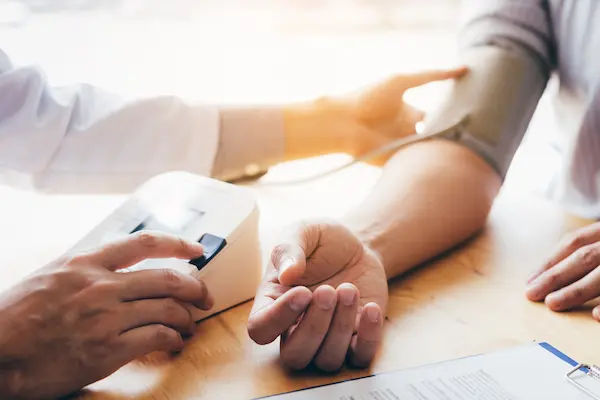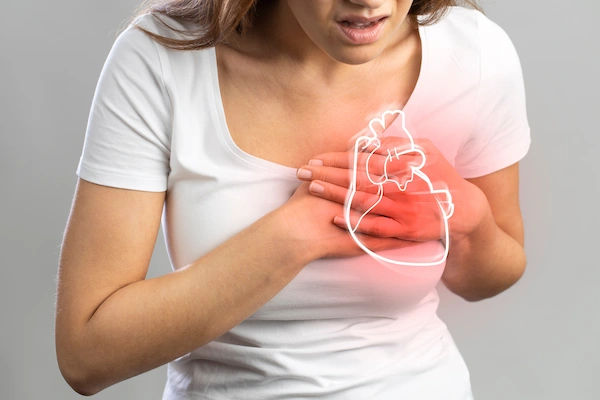- Male
- 26 Years
- 22/01/2025
I took an ECG and 2D Echo test today and got some numbers that are worrying me a bit. My EDV is 83ml, ESV is 28ml, and SV is 55ml, which apparently are below normal. Also, my IVSs ivsd LVPWD measurements were on the higher end of normal limits. Is this something I should be concerned about?
Answered by 1 Apollo Doctors
The values of EDV (End-Diastolic Volume), ESV (End-Systolic Volume), and SV (Stroke Volume) from your 2D Echo test indicate that your heart's pumping function may be below normal. The IVSs (Interventricular Septum thickness in systole), IVSd (Interventricular Septum thickness in diastole), and LVPWD (Left Ventricular Posterior Wall thickness in diastole) being on the higher end of normal limits may suggest some thickening of the heart walls. Based on these findings, it is important to follow up with your healthcare provider for further evaluation and management. Depending on the underlying cause, they may recommend medications such as ACE inhibitors like Enalapril or Beta-blockers like Metoprolol to help improve your heart function. The dosage will vary based on your individual condition, so please consult your healthcare provider for personalized recommendations.
Dr. Chandra Suggests...
Consult a Cardiologist
Answered 04/07/2025
0
0

More Cardiology Health Queries
View allI'm dealing with mild concentric LVH and my LVEF is at 65. I also have grade 1 diastolic dysfunction and mild to moderate MR, with an RVSP of 44 mm Hg. I find myself experiencing chest pain occasionally. What should I do about this, and is there something specific I should be concerned about?
Based on your condition, it is important to manage your chest pain and address the underlying heart issues. You may benefit from medications such as ACE inhibitors like Enalapril 5-20mg once daily to help with your heart function and blood pressure control. Additionally, a beta-blocker like Metoprolol 25-100mg once or twice daily can also be prescribed to improve heart function and reduce chest pain. It is important to follow up with your doctor regularly for monitoring and further management.
Answered by 1 Apollo Doctors
I'm dealing with heart issues and also have diabetes. Can I safely take Ramitorva capsules along with my current medication, Cetanil 10mg?
Yes, you can take Ramitorva capsules (which contain Ramipril and Atorvastatin) along with Cetanil 10mg. Ramitorva helps in controlling blood pressure and cholesterol levels, while Cetanil (Cetirizine) is an antihistamine used for allergies. Just make sure to follow the prescribed dosage for each medication.
Answered by 1 Apollo Doctors
I'm just wondering if my ejection fraction being 54 is something I should be worried about. I'm 30 years old, male, and I usually have low blood pressure. Does this mean I'm at risk for heart failure?
yes cardiac markers and angiogram is advised.
Answered by 1 Apollo Doctors
Disclaimer: Answers on Apollo 247 are not intended to replace your doctor advice. Always seek help of a professional doctor in case of an medical emergency or ailment.




